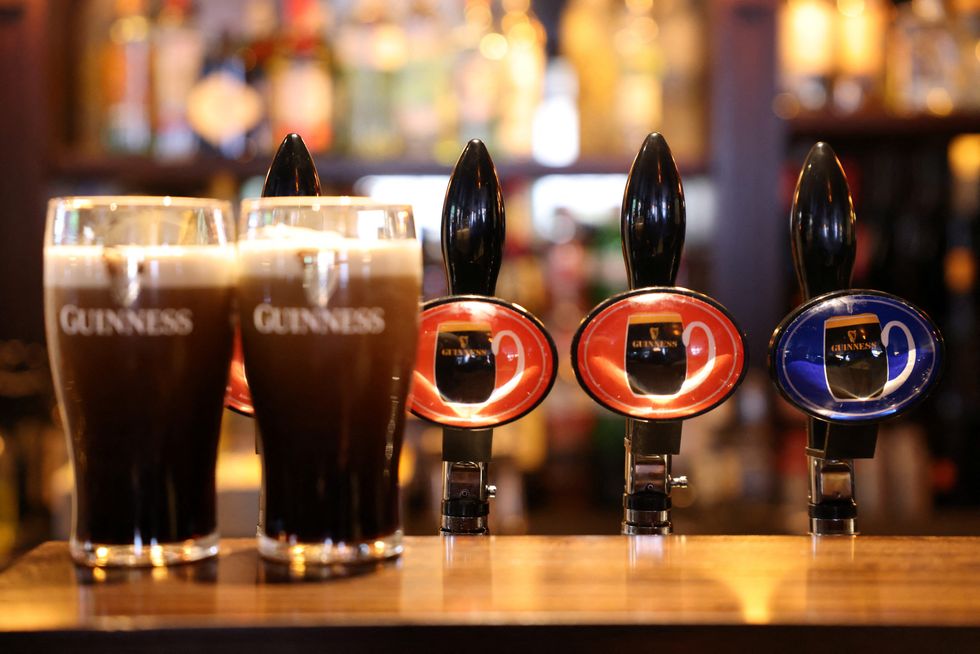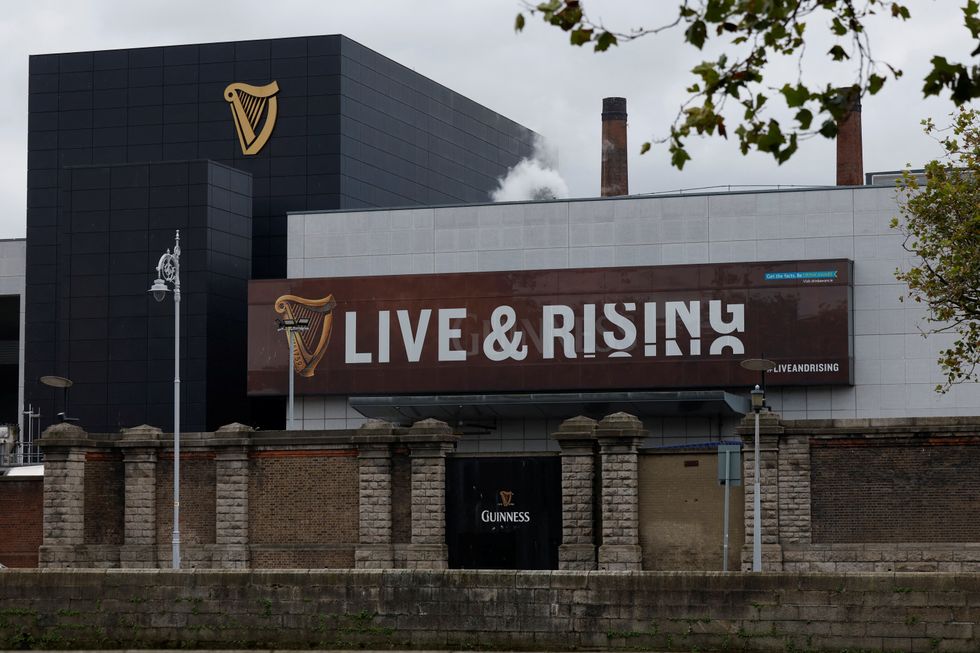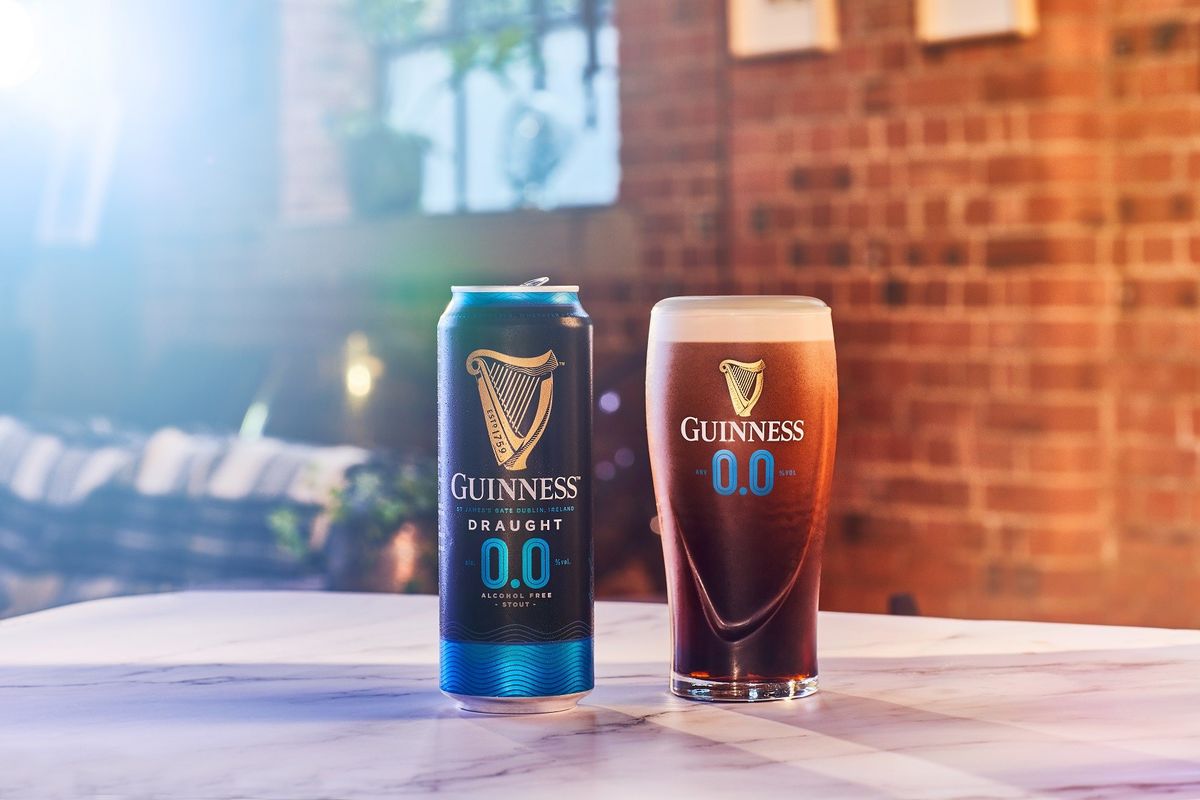Diageo needs its leading stout beer Guinness to keep growing fast and is pushing a zero alcohol alternative. But price hikes are turning off some UK customers and opening the door to rivals such as Heineken's Murphy's.
Guinness has been a much-needed bright spot in earnings for the world's top spirits maker, under pressure after a downturn in sales of other key brands like Johnnie Walker whiskey in some markets helped force a profit warning last year.
Diageo has made continued momentum for Guinness a key part of its growth strategy. Future drivers include a potential roll-out of Guinness 0.0, the zero-alcohol version, on draught in pubs beyond Ireland. It is currently testing the move at The Devonshire pub in London.
But years of double-digit growth for Guinness have caught the eye of rivals, including the world's top beer maker Anheuser-Busch InBev, which hope to become more serious competitors to Guinness, a dark beer with a rich malty taste.
Meanwhile, a series of price hikes has irked Guinness customers like Shane Ranasinghe, who with co-directors runs seven pubs across south London, including The Montpelier in Peckham and The Railway in Streatham.
He and two other UK publicans Reuters spoke to said they had started pushing rival brands, in particular Heineken stout Murphy's, to express their frustration and dent Guinness' hold on the market.
Ranasinghe and his co-directors put Murphy's next to Guinness on tap at their pubs, and later added signs advertising that Murphy's is around one pound cheaper at between £5.60 and £5.90 per pint.
"We said, 'let's give them (Diageo) some competition'," he told Reuters. "It was a struggle at first. Now, one in four pints of stout are Murphy's."

Complaints like Ranasinghe's are growing across London pubs, he and the two other publicans said, adding that as well as hiking prices Diageo had become restrictive in providing Guinness glassware and reduced the technical support on offer.
To be sure, Guinness remains by far the most popular stout. Previous efforts, including by Heineken, to break into the market have had little success.
But such frustrations offer an opportunity for rivals to capture more of stout's growth in Britain as drinkers and pubs look to "rebel against Guinness' dominance", said Lee Williams, beer category manager at UK alcohol distributor LWC Drinks.
Stout sales grew 12 per cent in Britain in 2023, and have risen every month since November 2021, driven by Guinness, according to the British Beer and Pub Association. The UK is the world's largest market for stout, worth $971 million (£769m) in 2023, according to drinks market research firm IWSR.
Diageo made $4.1 billion in beer sales in its 2023-24 financial year. It does not publish separate sales for Guinness, but the stout is its largest beer brand.
"We are proud that Guinness is enjoyed in over 60,000 pubs and restaurants across the UK," a Diageo spokesperson said, adding a team visited those outlets weekly to ensure quality standards as part of a major investment in the brand.
Growth, margins
Diageo is looking to Guinness to help offset faltering spirits sales. Guinness sales have grown double digits every year since 2021. Sales of Guinness 0.0 have also surged, more than doubling in Europe last year.
It wants to drive further growth including via sponsorship of English Premier League soccer and the potential expansion of Guinness 0.0 on draught, already available across 1,700 pubs in Ireland.
In Britain, where Guinness 0.0 is widely available in cans, Diageo said the label had reached an 8 per cent share of overall Guinness sales at end-June.
Diageo charges more for Guinness 0.0 than standard Guinness, because the company says it is more expensive to produce, two Irish publicans told Reuters. That is despite it avoiding hefty alcohol duties, which the Drinks Industry Group of Ireland (DIGI) estimates average €0.55 per pint.

Diageo recently doubled capacity for non-alcoholic stout at its Guinness brewery in Dublin to 176 million pints per year. If all of those were sold in Ireland, it would mean €97m in duty savings for Diageo based on DIGI's estimates.
The Hope Fitzrovia in central London makes a 52 per cent margin on Guinness, versus 75 per cent for Murphy's, said owner Philip O'Sullivan.
Simon Clarke, who owns The Railway in south London's Tulse Hill, added Murphy's on tap after Diageo hiked his Guinness prices around 25 per cent since 2020 and, at one stage, three times in a year.
He used to sell 10 kegs of Guinness a week; now around a third of that is Murphy's.
Competition
Heineken told Reuters that its distribution of Murphy's in Britain remained small and it had not increased marketing support to the brand. However, it added: "We are seeing more licensees looking for an alternative to the market leader."
AB InBev, meanwhile, said growth in the stout market prompted it to launch its Camden Stout in May last year, adding it was now the second-largest brand in British pubs, restaurants and other venues. Britain's BrewDog also launched a stout, Black Heart, last year.
Murphy's, Camden Stout and Black Heart don't have zero-alcohol versions. Guinness 0.0, meanwhile, became the eighth top-selling non-alcoholic beer in British pubs or other venues in 2023, after launching cans in venues in 2022, according to food and drink research company CGA using Nielsen data.
Guinness is likely to remain dominant, but other brands can also succeed as more drinkers, including young people and women, get a taste for stout, LWC's Williams said.
"We believe they will look for alternatives," he said. "Instead of just one player, there could be three or four brands of scale."
(Reuters)

